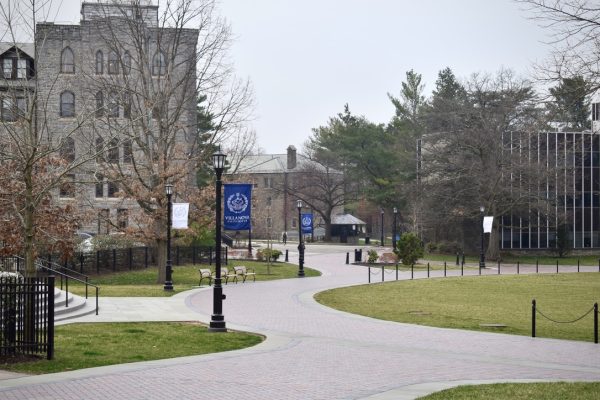Why I disagree with the concept of a safe space in college
January 26, 2016
I want to be clear—I am not advocating for the concept of the safe space to be removed from the University. VU Pride, Student Life and Multicultural Affairs all do a great job at enhancing our lives. If they feel that instituting this practice at our campus will contribute to increasing the quality of student life at the University, I appreciate the fact that these organizations make an effort to improve the University.
I am writing this article not for the sole fact that I disagree with the concept of a safe space. I am writing this article to explain that while many students are giving the institution of safe spaces a ringing endorsement, I will not be among them and will not be taking advantage of them. The reason that I do not want to take advantage of this campus resource is that I believe it contradicts what college is supposed to be about.
College is a time for us to grow. It is a time for us to discover our passions, realize our dreams and work towards our goals in life whatever they may be. Part of developing as a human being is learning different ideas and how to deal with those who have a different set of beliefs or values. The idea of a safe space is to give students an environment where bigotry and discrimination are not tolerated and certain touchy subjects can be discussed without judgment. In a perfect world, we have no bigots or people who discriminate against others. We do not have people who disagree with our core beliefs. The problem with this idea of the world is that it is not based in reality. Safe spaces create a figurative “bubble,” censoring people’s differing beliefs. This is contradictory to the purpose of college. While we are in college, we are supposed to be exposed to both sides of everything, including political, economic, educational or social justice issues. There is supposed to be an open dialogue that is taking place in an educational environment so it can promote independent thinking as well as academic and personal growth. Safe spaces inhibit this process, which I believe leads people to leave college without a real sense of how the world works, warts and all.
In a counterproductive way, safe spaces breed intolerance to an extent. They expel beliefs that do not match up with their collective views. Safe spaces merely are creations to affirm to someone that his beliefs are correct, even though others may have valid points on the opposite side. It creates the idea to students that the world is composed of two sides: right and wrong, black and white. I will admit that I tend to see things this way as well, even though part of me recognizes the fact that my thoughts deceive me. It is a part of being a young adult. Most of us see things in black and white. The truth, however, is that things are rarely in black and white. Life is a prodigious gray area; it is merely a matter of perception that determines what is morally upstanding or reprehensible.
As for discrimination, do I really think the University is so unsafe that safe spaces need to be created for people who feel they face discrimination? Absolutely not. Insisting that our campus is so unsafe is to the point of complete delusion. I am not suggesting that our campus is completely devoid of discrimination. I’m sure there are some who do discriminate against others because of race, gender, ethnicity and so on. However, let’s not make it sound like an epidemic. No one is walking around in a war zone of intolerance here at school. I’m afraid that occasional discrimination is something that remains fully engrained in the fabric of American society. It is something that can never be completely eradicated. All of us need to get used to it and learn how to deal with it in an effective way. I do not believe safe spaces help students deal with discrimination in an effective way. The creation of safe spaces is not a panacea to the issue of discrimination at the University and, on a grander scale, in America.
College is meant to prepare us for the real world. If we censor opposing viewpoints by the creation of safe spaces and refuse to learn about dealing with discrimination in a conducive way, then we leave college without growing as individuals. We still believe in the same core beliefs without understanding why these beliefs are contested. And we still think that we can hide against discrimination when it happens to us. Discrimination is a part of reality. Therefore, it is important we learn to confront the negative aspects of reality if we are to lead America in the near future.
The solution is simple—initiate an open dialogue. This will accomplish building tolerance towards each other’s beliefs, opinions, and identity. Safe spaces affirm one side is right when the truth is that both sides are right and wrong at the same time. College is a time for students to engage in intellectual dialogue, and I feel the creation of safe spaces is compromising this ideal negatively. Everyone needs to follow Rene Descartes’s epistemological system of skepticism. We need to doubt what we hold to be true and then listen. To everyone. By doing so, we can do a better job at conducting intellectual and tolerant discussions where we can learn opposing viewpoints and come to our own conclusions. And when we come to these conclusions, we are now more educated because we know exactly why we believe what we believe and why we disagree with the opposite side.
I do not expect many of you to agree with me. And in my opinion, that is completely okay. You are exercising your right of freedom of speech—something that safe spaces repress.







